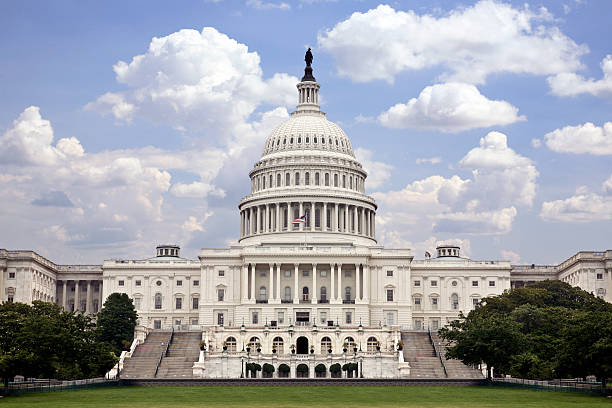American Society of Golf Course Architects (ASGCA) leaders fully support H.R. 7228, the Bolstering Intellectual Rights against Digital Infringement Enhancement Act (BIRDIE Act). The bill would update the Architectural Works Copyright Protection Act of 1990, which provided copyright protection for buildings to now extend the protections to include golf courses. This change will provide protection by amending the definition of an “architectural work” to include golf course designs.
The bi-partisan bill has been introduced in the U.S. House of Representatives by Rep. Brian Fitzpatrick (R–Pennsylvania) and Rep. Jimmy Panetta (D–California). ASGCA urges and welcomes members of Congress to cosponsor this common-sense legislation.
Comments from ASGCA Leaders
ASGCA President Mike Benkusky, ASGCA
“ASGCA thanks Rep. Fitzpatrick and Rep. Panetta for leading the efforts to make this correction to the Copyright Protection Act. The golf course architecture profession is diverse and practiced by those who are famous and not famous, wealthy and not wealthy, and from all sorts of technical and playing backgrounds. But most of us are small businesses, usually with few, if any, employees. We are proud to make millions of people smile on the layouts we design and don’t want anything special. We just don’t want anyone to unfairly copy and use our work.”
ASGCA Past President Jan Bel Jan, ASGCA
“The BIRDIE Act isn’t just good for golf course architects, it’s good for golf course owners as well. It acknowledges golf courses for what they are: creative works of art. Golf course architecture isn’t just planned on paper; it’s also created on site by visionaries making the most of a setting. While physical plans can be copyrighted, decisions made in the field cannot. So, it makes sense that a finished golf course would be protected as well.”
ASGCA Past President Forrest Richardson, ASGCA
“Building architects were ‘made whole’ on copyright in 1990 when the Architectural Works Act was passed, essentially protecting the actual work and not just the plans, renderings and ‘work’ of the building architect. What this bill does is simply extend the existing copyright laws that apply to building architecture…to golf courses. It does not preclude remodeling. It generally applies to ‘golf courses’ – a full course created by a modern golf architect, that is unique in its design, features and ‘sculpting.’”
ASGCA Past President Robert Trent Jones, Jr., ASGCA
“The BIRDIE act is simple – it adds golf course architecture to existing laws and protects both architects and business owners. By securing the copyrights to their work, golf course architects can pass on that benefit to owners as those courses will establish their unique design and retain their value for the long term. Right now, other countries provide better protection for the work of golf course architects even though the vast majority of architects doing that work are from the United States. By securing these copyrights, we inspire them to continue creating original designs and playing experiences for the huge numbers of golfers in the United States and around the world. This protection will ensure that if someone wishes to copy their work, then the architect will be involved to make sure it’s represented accurately and properly for the benefit of all.”
ASGCA Past President Jason Straka, ASGCA
“This update to the Copyright Protection Act will benefit golf course architects and club owners. I recently had a friend tell me he ‘played’ one of my courses, only to learn he had never been to the facility but had experienced it using a virtual reality device. Someone had copied the course in detail without permission from myself or the club and made it available to be played virtually. The bill being discussed would prevent this from happening without approval.”
ASGCA Executive Director Chad Ritterbusch
“American golf course architects are acknowledged all over the world for their technical skill, deep experience and creative artistry. As a result, they design and renovate golf courses in dozens of countries around the world every year. Some of these countries have little intellectual property protection requiring Americans to go it alone against court systems that can be stacked against them. HR 7228 provides a subtle nudge of support as golf course architects and the golf course industry export American ingenuity overseas.”
###

